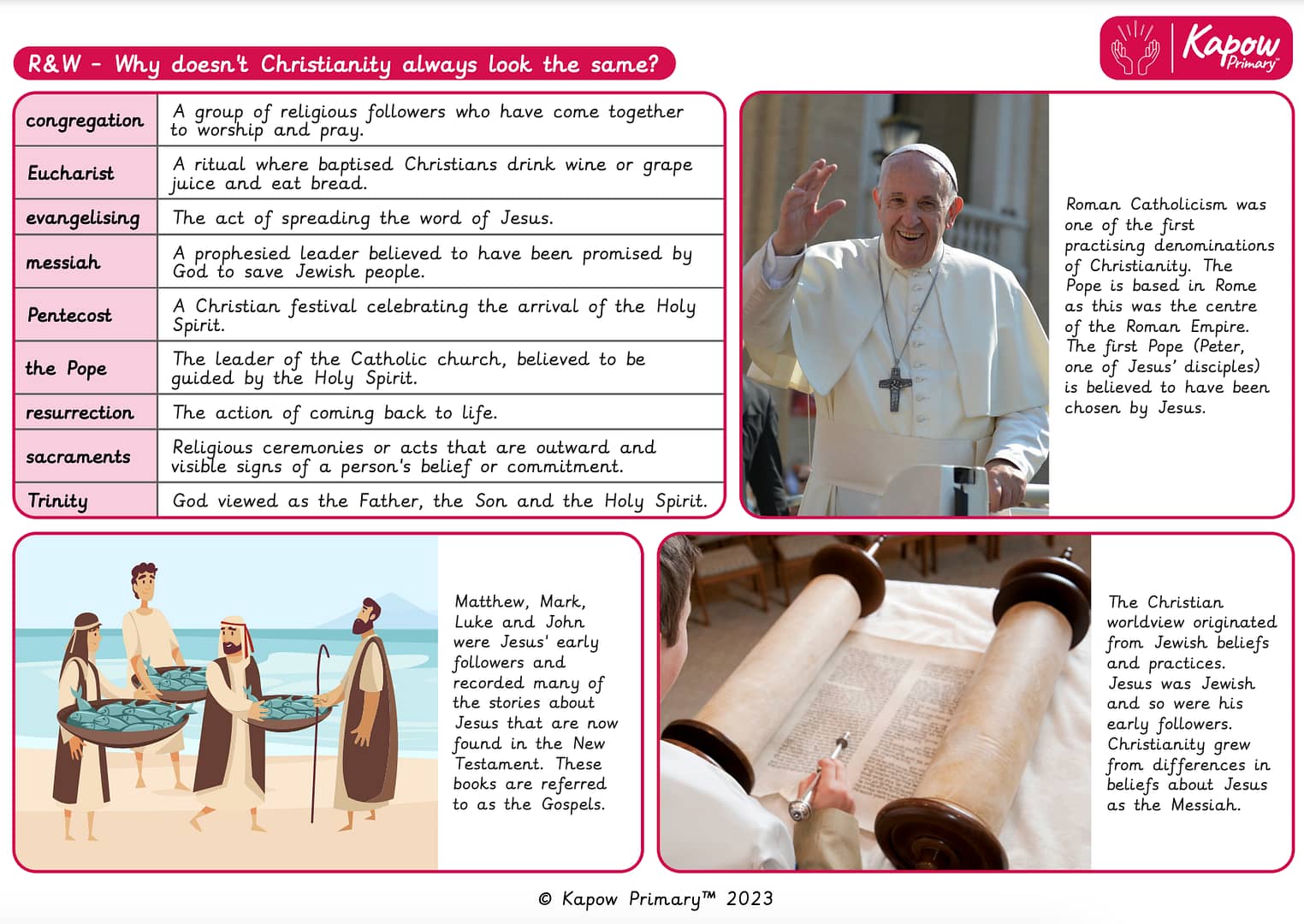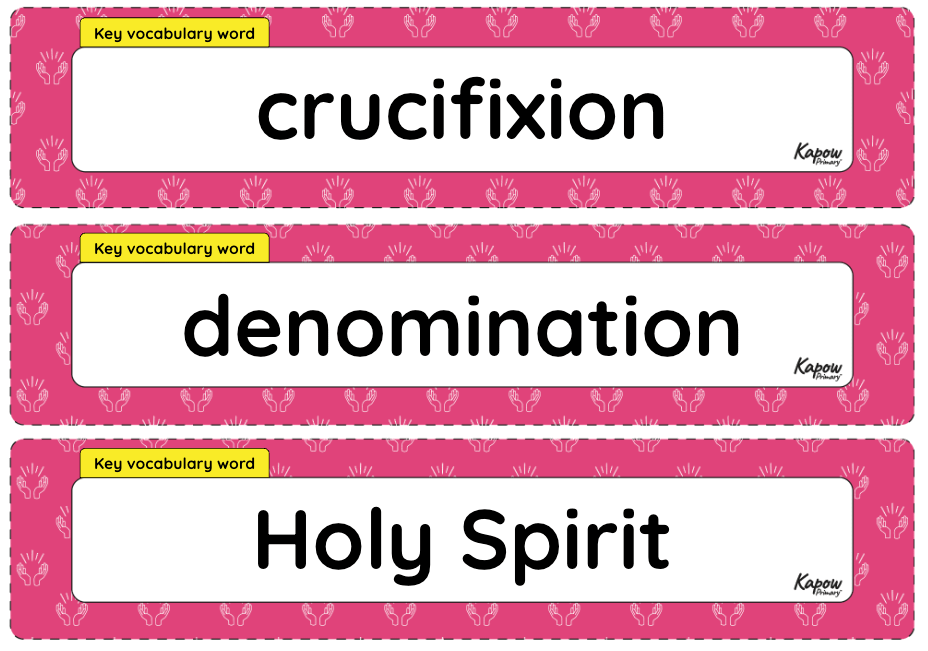Please note
This unit has now been replaced by the Year 5 unit Why doesn’t Christianity always look the same?. Kapow no longer updates these lessons, and they may not reflect the national curriculum or current guidance. They remain a permanent part of your subscription and will continue to be available for reference and use. We recommend that you explore the new versions of the lessons.
Unit outcomes
Pupils who are secure will be able to:
- Explain why some people believe Jesus was the Messiah.
- Give examples of how Christianity spread as a religion.
- Identify different features of a Catholic church.
- Explain the uses of different features of a Catholic church.
- Identify some reasons why people began practising in different ways.
- Organise different Christian practices according to their impacts on believers.
- Identify how different people represent Jesus depending on personal and cultural influences.
Lesson 5 explores different Christian practices and the importance of each for different people. After lesson 4, you may wish to visit a Christian place of worship or invite a member of the congregation or clergy to your school to support the children’s learning.
It is important to risk-assess the visit taking into account any relevant school risk assessment policies and procedures. Please be aware this lesson may take longer than one hour.
Suggested prior learning
Why is the Bible the best-selling book of all time?
Get startedTeacher video: Why doesn't Christianity always look the same?
Lessons
Lesson 1: Why did some people believe Jesus was the Messiah?
Lesson 2: How did Christianity develop?
Lesson 3: What is Roman Catholicism?
Lesson 4: How have historical changes impacted Christianity?
Lesson 5: How can being part of a Christian community give a sense of belonging?
Lesson 6: Does everyone have the same picture of Jesus?
Key skills
Disciplinary
- Asking challenging
This content is for subscribers only. Join for access today.
Key knowledge
Substantive
To know:
- Some of the
This content is for subscribers only. Join for access today.
Key vocabulary
crucifixion
denomination
This content is for subscribers only. Join for access today.
Related content
Unit resources
Subject resources
This content is for subscribers only. Join for access today.
Cross-curricular opportunities
British Values: Tolerance of different cultures and religions, Mutual respect.
English: Comprehension, Spoken language, Writing composition.
History: A study of an aspect or theme in British history that extends pupils’ chronological knowledge beyond 1066, the Roman Empire and its impact on Britain, Britain’s settlement by Anglo-Saxons and Scots.



